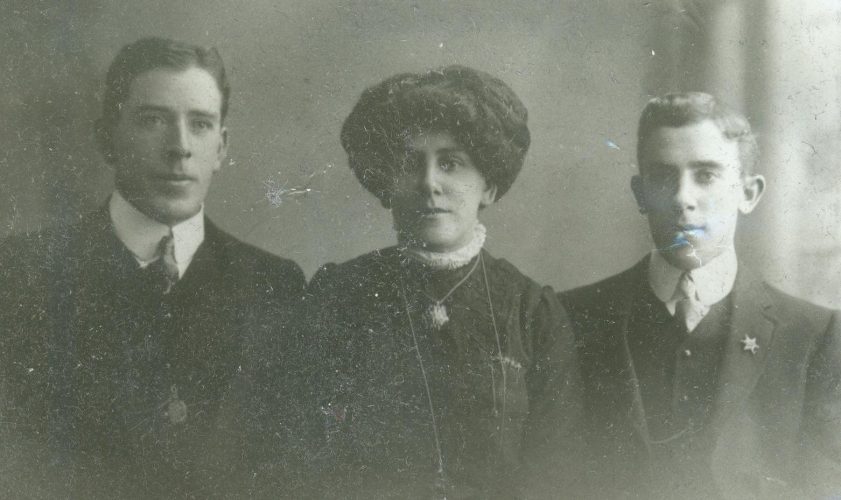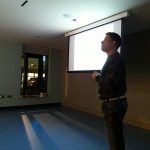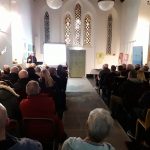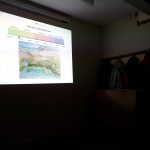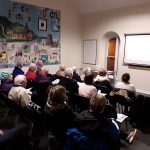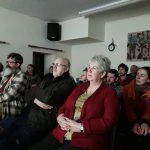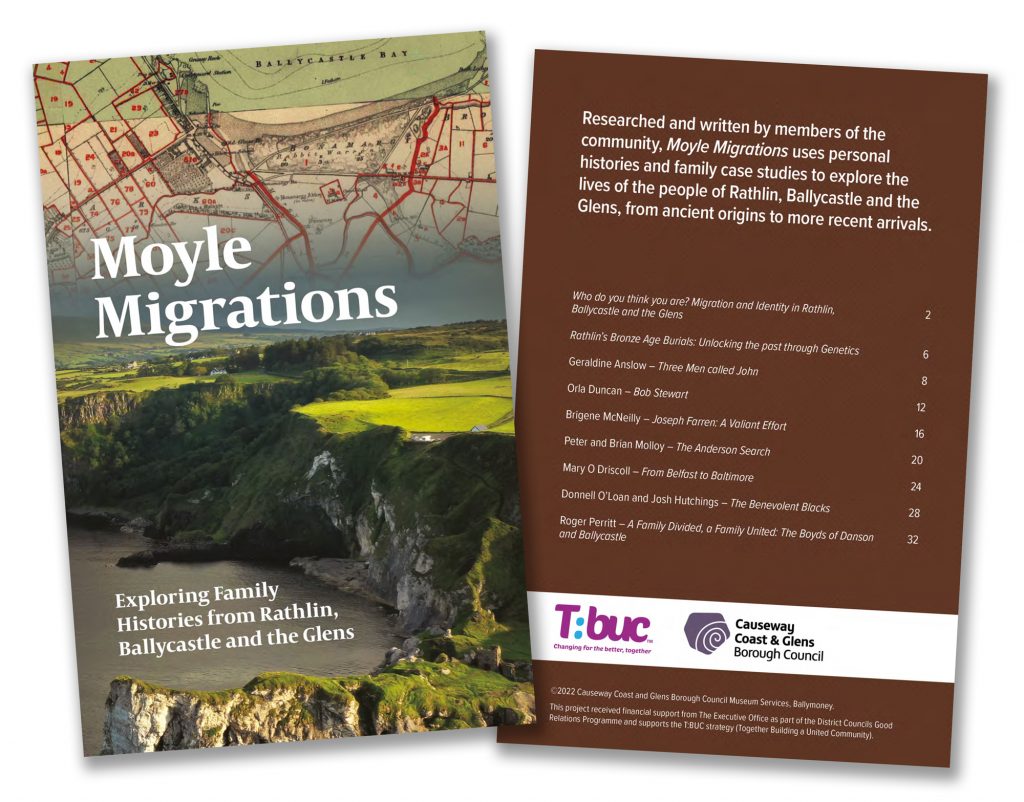Who do you think you are? Project background

Flowerfield and Ballymoney Writers take inspiration from the Sam Henry Collection
29th July 2019
Ballymoney Drama Festival’s 80th Anniversary
13th September 2019Who do you think you are? Project background
Project Attributes
Project:
Owner:
Date:
25th August 2019
Who do you think you are?
Migration and identity in Rathlin, Ballycastle and the Glens
Who do you think you are? is a multi-year project supported by Causeway Coast and Glens Borough Council and The Executive Office, through the Together: Building a United Community, District Council’s Good Relations Programme, delivered through Museum Services. It set out to explore and celebrate identity and culture through oral histories and DNA testing to establish genetic ancestry estimates, supported by genealogical and historical investigations leading to a showcase publication.
Year 1 (2019-2020) focused on outlining the benefits and challenges of DNA testing to establish genetic ancestry with participants from three partner organisations.
-
Carey Historical Society
-
Glens of Antrim Historical Society
-
Rathlin Development and Community Association
Additional support was received by the Heart of the Glens Partnership who provided 10 of the DNA kits from AncestryDNA to help cover participants from the Glens of Antrim Historical Society who lived in the two Glens of Antrim beyond the boundaries of the Causeway Coast and Glens Borough.
Year 1 project summary
Most parts of the Year 1 programme were delivered before the impact of the Covid-19 pandemic caused community engagement projects to be halted. However, a Big Reveal public event scheduled for the end of March 2020 was cancelled. This report goes someway to exploring some of the programme findings that would have been discussed at the Big Reveal event.
-
2x talks on what ancient DNA can tell us about past populations in Ireland delivered by Prof. Dan Bradley (TCD).
-
3x talks on what modern DNA testing can tell us about our own families delivered by Martin McDowell (NIFHS).
-
400 minutes of oral history interviews with 60 participants discussing their knowledge of their family and how it impacts on their sense of identity.
-
60x DNA tests undertaken with participants from across the area and registered with AncestryDNA.
-
45x sets of summary results returned by participants (as of 20/03/20).
Year 2 project summary
Year 2 (2020-2021) was to focus on genealogical training to enable the programme participants to further the paper-based research into their own family and community histories. The anticipated training was greatly disrupted by social distancing and other public health requirements brought on by the Covid-19 pandemic and all training was made available digitally here on the Northern Ireland Community Archive.
-
Summary findings of the DNA testing carried out during year 1 and associated information written up across four project posts (Summary DNA results; Speaking of identity…; Unknown family members and DNA colour clustering; The skeleton in the closet).
-
A video talk on the benefits of geographically based DNA testing programmes delivered by Martin McDowell (NIFHS).
-
A series of 12 training videos delivered by William Roulston (UHS) exploring both the practical steps for participants to take when researching family histories, and also outline the available resources on- and off-line, and how to access them
-
A video talk prepared by the Public Records Office of Northern Ireland (PRONI) to provide an introduction to the online resources available through PRONI.
-
Three video talks provided by Museum Services staff looking at the basics of caring for and storing paper and photographic archives, as well as fabric and textiles, and outlining the local history resources available through the Ballymoney Museum Community Resource Area.
Year 3 project summary
Year 3 (2021-2022) saw a group of 10 volunteers participate in a programme of interpretation workshops examining the essential aspects of writing interpretative content for public audiences, whether for exhibitions, booklets or blog posts. It explored the different approaches to interpretation, audience identification, preparing and writing content, and the basics of copyright law as it impacts on heritage practitioners and community groups.
“A very stimulating experience. We had a great bunch of participants and it was fascinating to learn their stories, as much as it was enlightening to uncover more of our own!”
Nine of our volunteers prepared case studies based on family histories uncovered during their own journeys of discovery. Their contributions illuminate the multitude of personal experiences which have created the communities of Rathlin, Ballycastle, and the Glens, as well as celebrating the region’s international links formed through immigration and emigration.
“This was a really enjoyable and interesting project and I know everyone absolutely loved being part of it. The contributions were so diverse and yet everyone was fascinating. Friendships were forged and fun was had.”
These case studies, together with a summary of the earlier year’s findings were produced in the Moyle Migrations booklet, published in March 2022.
Find out more about this project by clicking on the links below
Project background
Summary DNA results
Speaking of identity…
Unknown family members and DNA colour clustering
The skeleton in the closet
The advantages of a geographic DNA project
Genealogical research training videos
PRONI introductory video
Collections care training videos
Moyle Migrations booklet
For more information, or to get involved with this or future projects, contact Museum Services at cms@causewaycoastandglens.gov.uk


